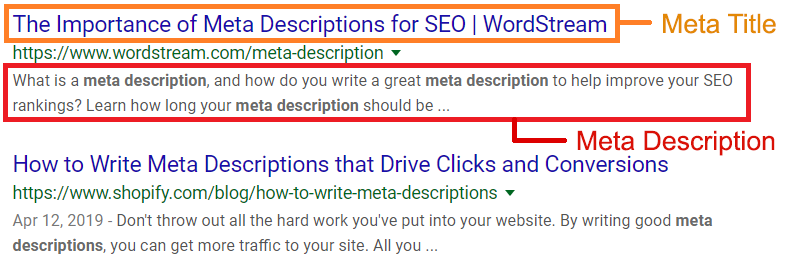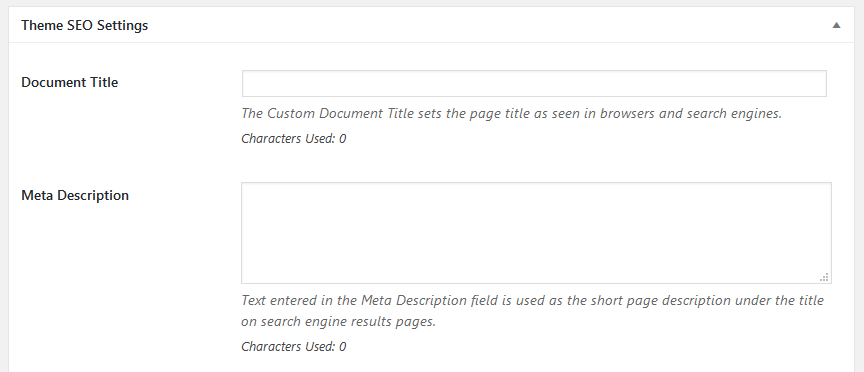When trying to grow your SEO footprint, it is vital that you consider your use of important real estate keywords and phrases.
Important as you read: “Posts” refer to your blog posts, the searches you create with SEO Presto, and generally any content that you’re adding to your WordPress website. You add it all in the form of a post.
What does SEO mean?
You probably hear and read this acronym a lot. SEO stands for Search Engine Optimization, and it’s a process or strategy used to drive users to your website. The goal is to make your website more visible and more relevant to users and search engines.
What do you mean by “keywords”?
“Keywords” refer to the words or phrases that users are actually entering into search engines to find what they’re looking for. For example, a person looking to buy a home in Colorado Springs might search on key phrases like “Real Estate in Colorado Springs” and “Colorado Springs Homes for Sale.” If your website has lots of good content relevant to those search terms (e.g. lots of searches for different types of homes for sale in Colorado Springs), then Google and other search engines are more likely to make your site visible to that searcher.
How do I use keywords to effectively increase my SEO footprint?
Consider the keywords and phrases that your clients and user-base are going to be searching on. With those in mind, use these tips to help as you incorporate them into your site’s content:
Real Estate Keyword Do’s:
- Use your keywords naturally. Use sentence form, and write content that sounds natural and just happens to contain your important keywords. Keep your content brief and informative.
- Use locally relevant keywords. The more you can hone in on your niche, the less competition you have and the more likely you are to drive the right clients to your website.
- Use tools to help. SEOMoz and Google Adwords Keyword Tool are tools that can help you figure out what keywords and phrases people are using to search, and how many other real estate agents might be after your same audience.
- Use post titles effectively. Your keywords can and should be used in your post titles as well as their content. These actually carry quite a bit of weight, so you want to use them strategically. With post titles, it’s important to be brief and use headline-style writing, so make sure your most important keywords are in the title, and others can be added to the post’s content. Use title casing, proper spacing, and avoid special characters. If you use hyphens, be sure to put spaces before and after them.
- Good post title: Colorado Springs Condos for Sale
- Bad post title: condos real estate for sale homes Colorado Springs
- Good post title: The Broadmoor – Colorado Springs Homes for Sale
- Bad post title: The Broadmoor-Colorado Springs Homes for Sale
- Publish content often. Leave anything alone for too long and it loses its luster. Your website is no different. Keep your website fresh and relevant by regularly adding new content.
- Share your posts on social media platforms. For best results, share your posts on Facebook, Twitter, Google Plus, etc. This helps you get the word out to your existing audience, and it builds back-links to your site.
- Use keywords throughout the body of your post. You want your keywords to appear in the first sentence of your post, but you should include them throughout.
- Write good meta descriptions. You don’t have to write these, because search engines can get descriptions from your post’s content itself. But if you’re looking for the added boost, include meta descriptions as you post. Meta descriptions should use a sentence format – just one to two, don’t write yourself a novel there. And you should follow the same rules that you follow for your content – use your keywords early, and write in a natural way.
Pause. What are meta titles and meta descriptions?
These are bits of information that help Google and other search engines understand the content of your page. They usually display when that page appears in search results.

Real Estate Keyword Don’ts:
- Expect instant results. Building your SEO footprint takes time. Search engines might not find and index your content right away. If you’re expecting an immediate boost in ranking and traffic, you’re only setting yourself up for disappointment. Slow and steady wins the race.
- Obsess over meta keywords. As search engines get smarter, they pay less and less attention to meta keywords, giving them almost no weight. What search engines are really most interested in is your website’s content.
- “Keyword stuff.” In the “early days” when everyone was first learning about Search Engine Optimization, search engines were paying attention to meta keywords. So people started stuffing their meta keyword fields full of every conceivable keyword that might be even slightly related to their post. Well, search engines saw what was happening, and in part that’s why meta keywords aren’t given much weight anymore. Search engines are onto you. We’re onto you. Don’t do it.
- Use your WordPress categories and tags to insert keywords. The category and tag structure you’ll see among your WordPress posts is largely for internal organization. You don’t want to be using your post tags to keyword stuff, like this:

- Misspell your keywords. If you misspell important keywords, especially in your post titles, you’re defeating yourself. People probably aren’t going to be searching on “Colorado Sprigs Homs for Sale.
- Duplicate your content. Copying someone else’s content, and even using your own content but copying and pasting it across multiple posts is going to make you look spammy to search engines. If you find that some of your post content is similar, make sure each has unique elements – like a one-of-a-kind title, and original text content.
- Forget your users. if you write just for search engines and forget to make your content useful to your visitors, you’re going to risk turning off the people you worked so hard to drive to your site in the first place. Make sure your posts contain relevant information that is useful to your visitors.
Related Articles
Adding Locally Relevant Content to Your SiteCaring for Your WordPress Website

